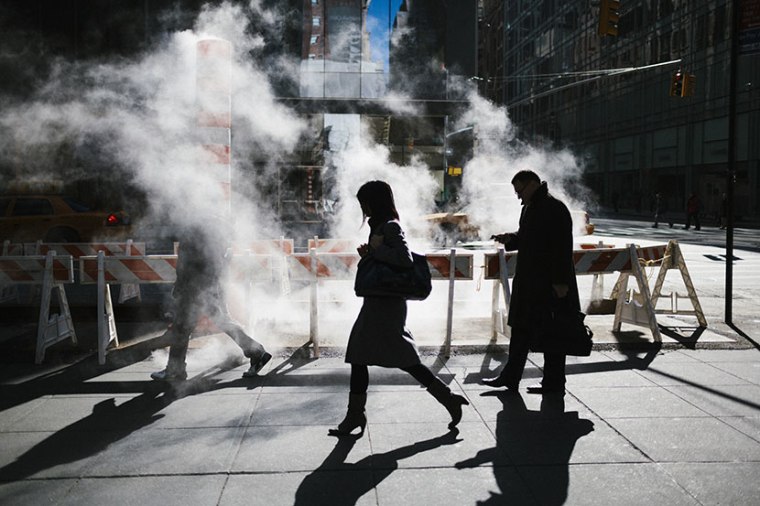The country is in an uproar over revelations by a 29-year-old former Central Intelligence Agency employee that the U.S. government has been snooping on a massive scale. But private industry has been snooping on an even more massive scale for years.
Web-based commerce places an unprecedented quantity of personal information in the hands of private companies and that information is increasingly being winnowed and refined and bought and sold.
Last week, the country learned that the National Security Agency was helping itself, somewhat indiscriminately (though apparently legally), to e-mails, audio and video chats, photographs, stored data, social networking data, and other supposedly confidential data, all in the name of anti-terrorism. But where did the NSA obtain all this intimate information? From the private businesses that possess it.
According to a slide presentation by the NSA, obtained by The Guardian and The Washington Post, the government started collecting data from Microsoft in 2007, from Yahoo in 2008, from Google, Facebook, and PalTalk in 2009, from YouTube in 2010, from Skype and AOL in 2011, and from Apple in 2012. (Twitter refused to play.) Several of these companies deny cooperating with the government, for reasons that remain unclear. But these companies readily admit that they routinely retain and commodify mountains of personal data. That’s not a secret, it’s a business model.
Indeed, when the government first wanted to learn how to better monitor information flowing through the Web, it went to Silicon Valley, according to an interview that former NSA director Michael V. Hayden gave National Journal. It was private companies—though not, in all likelihood, any of those listed above—that had the necessary knowhow. A major contractor for an early forerunner to the NSA’s current Prism program called Total Information Awareness (scrubbed by Congress in 2003 as too intrusive) was Booz Allen, the same company that employed Edward Snowden when he leaked information about Prism.
Hayden has dubbed the private tech firms that carry out the NSA’s Web-data surveillance “Digital Blackwater,” in homage to the shadowy security firm hired to protect American government officials in Iraq and Afghanistan. To be sure, Booz Allen and whatever other companies created and maintain Prism were directed and funded by the federal government. But that doesn’t make them any more accountable than Blackwater was after its employees were found to have stolen guns and killed innocent Afghan civilians. (Renamed Academi, Blackwater continues to maintain a strong presence in Afghanistan.)
If privacy is dead in America, its killer isn’t Big Government; it’s Big Business. And the crime took place long before government arrived on the scene. Sun Microsystems chief Scott McNealy pronounced the victim dead way back in 1999. “You have zero privacy,” he said. “Get over it.”
McNealy said this week that he’s far more concerned about the NSA’s privacy violations than he is about the corporate infringement he spoke of 14 years ago. “Should you be afraid if AT&T has your data?” he queried. “Google? They’re private entities. AT&T can’t hurt me. Jerry Brown and Barack Obama can.”
AT&T and Google lack the power to raise taxes, garnish wages, shut down businesses, or throw people in prison. But AT&T and Google’s actions are hardly benign. For better or worse, the government is trying to protect McNealy and others against acts of terrorism. (Reportedly Prism already helped prevent Najibullah Zazi from planting backpack bombs in the New York City subways.) Fears about Prism focus not on its goals—everybody wants acts of terrorism to be stopped--but on its methods.
By contrast, whenever private industry invades your privacy, it isn’t to protect you from anything. Rather, it’s to hone its own self-interested understanding of who you are and what you’re like so it can sell you something.
In 2010 the Wall Street Journal counted more than 2000 tracking files installed by more than 130 companies when it visited the 50 most popular U.S. Web sites. Tracking files can alert advertisers whether you have bipolar disorder, or whether you have an overactive bladder—information you might not wish to share with anyone but your doctor. The people responsible for such intrusions can’t be voted out of office. Raise the issue at a shareholder’s meeting if you like, but democracy works with far greater efficiency in government than in private corporations.
None of this should free the Obama administration from having to answer hard questions about the sweeping nature of Prism. Is it truly necessary? Are there better, less intrusive alternatives? But it’s not just Uncle Sam who can play Big Brother. He has plenty of siblings in the private sector and learned most of his tricks from them.
